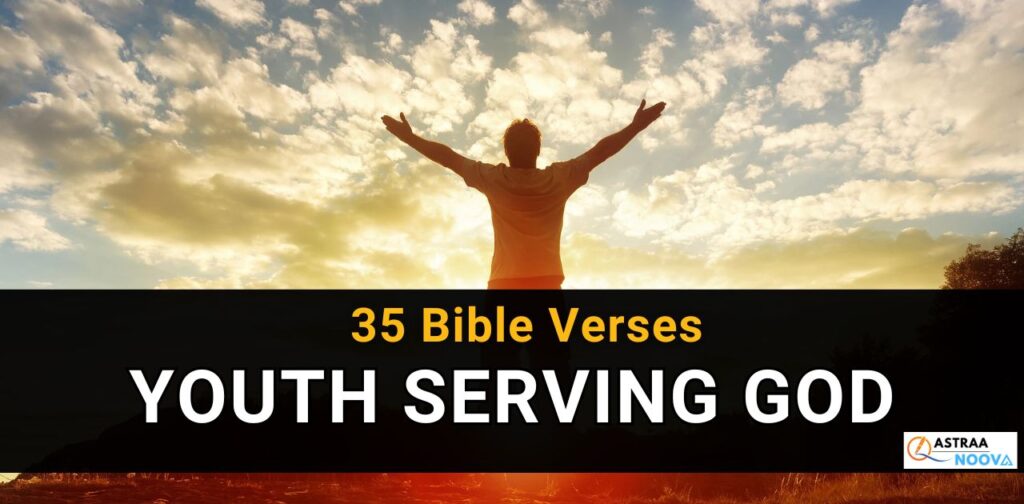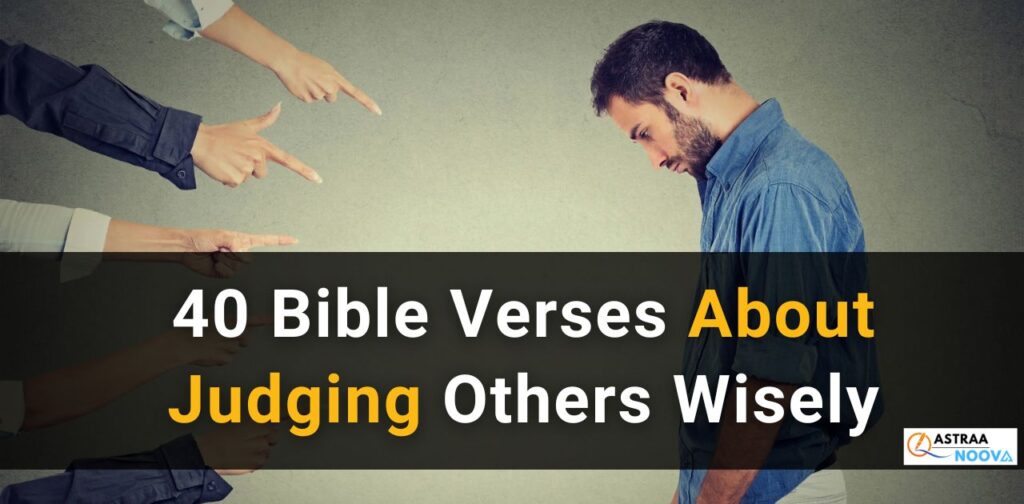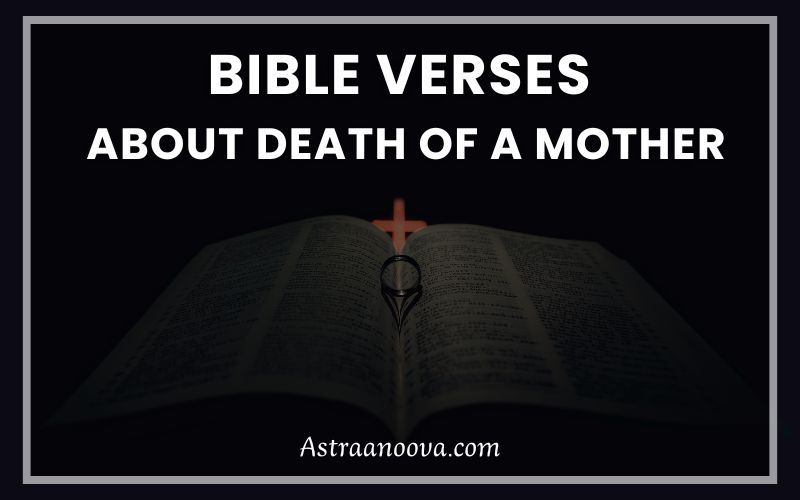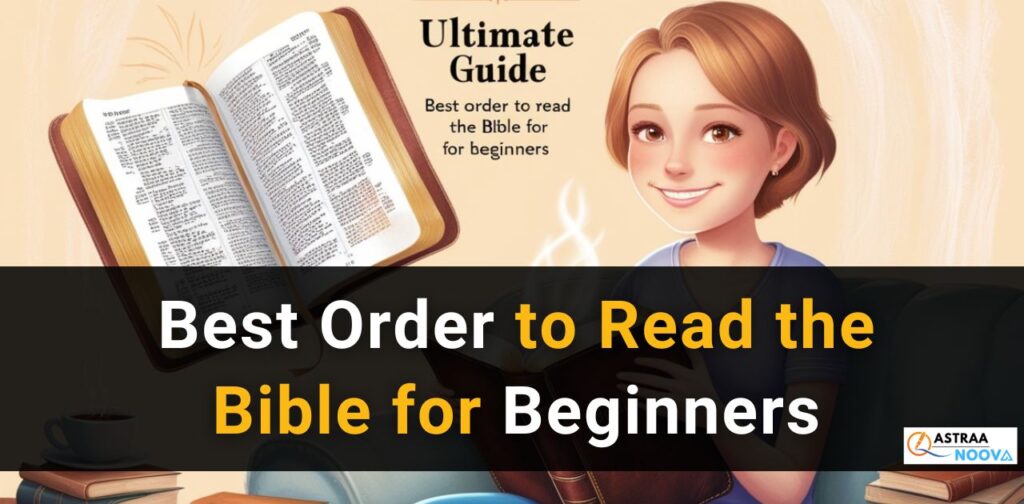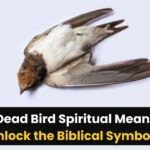The Bible contains numerous passages that challenge modern readers’ understanding and expectations. From peculiar dietary laws to surprising prophecies, these verses offer fascinating glimpses into ancient religious texts and practices.
This comprehensive exploration examines fifty of scripture’s most unusual passages, providing context and deeper understanding.
Here are the list of 50 Most Weird Bible Verses
Throughout history, readers have encountered biblical passages that seem strange or difficult to understand. These verses, while challenging to modern sensibilities, often carry deep theological significance and historical context worth exploring. The following sections examine these passages across different categories and biblical periods.
Weird Bible Verses in the Old Testament
Ezekiel 4:12-15
“And you shall eat it as a barley cake, having baked it in their sight over a fire of human dung.”
This striking passage occurs within Ezekiel’s symbolic actions prophesying Jerusalem’s siege. The unusual cooking method represented the desperate conditions the people would face, highlighting divine judgment through vivid imagery.
Judges 3:21-22
“Ehud reached with his left hand, drew the sword from his right thigh and plunged it into the king’s belly. Even the handle sank in after the blade, and his bowels discharged.”
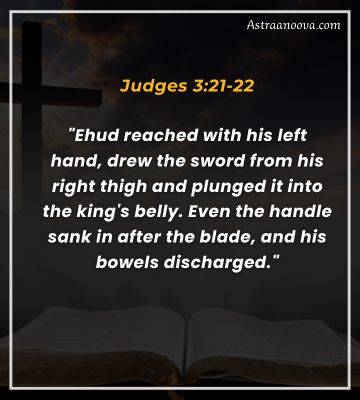
This graphic description details Ehud’s assassination of King Eglon, demonstrating the historical accuracy and unflinching narrative style of ancient Near Eastern literature.
2 Kings 2:23-24
“He went up from there to Bethel, and while he was going up on the way, some small boys came out of the city and jeered at him, saying, ‘Go up, you baldhead! Go up, you baldhead!’ And he turned around, and when he saw them, he cursed them in the name of the Lord. And two she-bears came out of the woods and tore forty-two of the boys.”
This account of Elisha demonstrates divine protection of God’s prophets, though modern readers often find the severity of the punishment striking. The passage emphasizes the serious consequences of mocking divine authority in ancient Israel.
Genesis 38:8-10
“And Judah said unto Onan, Go in unto thy brother’s wife, and marry her, and raise up seed to thy brother. And Onan knew that the seed should not be his; and it came to pass, when he went in unto his brother’s wife, that he spilled it on the ground, lest that he should give seed to his brother. And the thing which he did displeased the LORD: wherefore he slew him also.”
This passage addresses the ancient custom of levirate marriage, where a man was obligated to father children with his deceased brother’s widow. The text illustrates the serious nature of familial obligations in biblical times.
1 Samuel 6:19
“But God struck down some of the inhabitants of Beth Shemesh, putting seventy of them to death because they looked into the ark of the Lord.”
This verse highlights the sacred nature of the ark of the covenant and the strict protocols surrounding its handling. The severe consequence emphasizes the importance of treating holy objects with appropriate reverence.
2 Kings 6:28-29
“Then he asked her, ‘What’s the matter?’ She answered, ‘This woman said to me, “Give up your son so we may eat him today, and tomorrow we’ll eat my son.” So we cooked my son and ate him. The next day I said to her, “Give up your son so we may eat him,” but she had hidden him.'”
This harrowing account describes the desperate conditions during the siege of Samaria. The passage illustrates the severe consequences of divine judgment and the horrific circumstances faced during ancient warfare.
Job 2:7-8
“So Satan went out from the presence of the Lord and afflicted Job with painful sores from the soles of his feet to the crown of his head. Then Job took a piece of broken pottery and scraped himself with it as he sat among the ashes.”
This vivid description from the book of Job portrays the physical suffering endured during his spiritual trial. The detail about the pottery shard emphasizes the depth of his affliction while demonstrating remarkable patience.
Exodus 4:24-26
“At a lodging place on the way, the Lord met Moses and was about to kill him. But Zipporah took a flint knife, cut off her son’s foreskin and touched Moses’ feet with it. ‘Surely you are a bridegroom of blood to me,’ she said.”
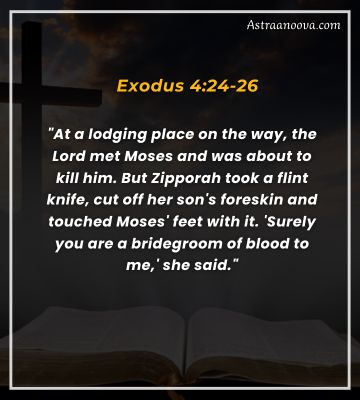
This enigmatic passage highlights the importance of covenant faithfulness, specifically regarding circumcision. Zipporah’s quick action saved Moses by fulfilling the covenant obligation he had neglected.
Jeremiah 19:1-2, 9
“The Lord says: ‘Go and buy a clay jar from a potter… Then break the jar in the presence of those who go with you and say to them, “This is what the Lord Almighty says: I will smash this nation and this city just as this potter’s jar is smashed.”‘”
This prophetic action demonstrates God’s intended judgment on Jerusalem through powerful symbolic imagery. The breaking of the jar served as a vivid object lesson for the people.
Hosea 1:2-3
“When the Lord began to speak through Hosea, the Lord said to him, ‘Go, marry a promiscuous woman and have children with her, for like an adulterous wife this land is guilty of unfaithfulness to the Lord.’ So he married Gomer daughter of Diblaim.”
This passage uses the prophet’s marriage as a metaphor for God’s relationship with unfaithful Israel. The dramatic personal narrative served to illustrate spiritual truth through lived experience.
2 Kings 6:24-25
“Some time later, Ben-Hadad king of Aram mobilized his entire army and marched up and laid siege to Samaria. There was a great famine in the city… Then a donkey’s head was sold for eighty shekels of silver.”
This text depicts the severe conditions during Samaria’s siege, where food became so scarce that even unclean animals commanded excessive prices. The detail about the donkey’s head emphasizes the desperate circumstances.
Weird Bible Verses in the New Testament
Mark 5:1-13
“A man with an impure spirit… lived among the tombs. No one could bind him anymore, not even with chains… Jesus asked him, ‘What is your name?’ ‘Legion,’ he replied, ‘for we are many.’ The impure spirits begged Jesus, ‘Send us among the pigs.'”
This dramatic account demonstrates Jesus’s authority over spiritual forces. The detail about the spirits entering pigs illustrates both Christ’s power and the reality of spiritual warfare in biblical narrative.
Mark 14:51-52
“A young man, wearing nothing but a linen garment, was following Jesus. When they seized him, he fled naked, leaving his garment behind.”
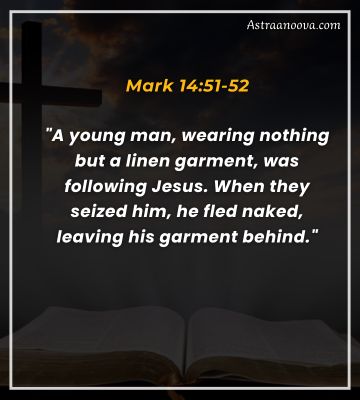
This curious detail in Mark’s passion narrative may represent the author’s personal experience, offering a glimpse of the chaos during Jesus’s arrest.
1 Corinthians 11:14-15
“Does not the very nature of things teach you that if a man has long hair, it is a disgrace to him, but that if a woman has long hair, it is her glory? For long hair is given to her as a covering.”
This passage reflects cultural standards of the first-century Mediterranean world regarding gender presentation and appropriate appearance in worship contexts.
Matthew 19:12
“For there are eunuchs who were born that way, and there are eunuchs who have been made eunuchs by others—and there are those who choose to live like eunuchs for the sake of the kingdom of heaven.”
Jesus discusses different forms of celibacy, acknowledging both biological and chosen conditions while teaching about dedication to spiritual service.
John 2:13-16
“When it was almost time for the Jewish Passover, Jesus went up to Jerusalem. In the temple courts he found people selling cattle, sheep and doves, and others sitting at tables exchanging money. So he made a whip out of cords, and drove all from the temple courts.”
This account shows Jesus’s passionate response to the commercialization of temple worship, demonstrating righteous anger against religious exploitation.
Matthew 8:28-34
“When he arrived at the other side in the region of the Gadarenes, two demon-possessed men coming from the tombs met him. They were so violent that no one could pass that way. The demons begged Jesus, ‘If you drive us out, send us into the herd of pigs.'”
This dramatic exorcism narrative demonstrates Jesus’s authority over evil spirits while also revealing complex cultural dynamics between Jewish and Gentile territories.
Acts 5:1-11
“Now a man named Ananias, together with his wife Sapphira, sold a piece of property. With his wife’s full knowledge he kept back part of the money for himself… Then Peter said, ‘How is it that Satan has so filled your heart that you have lied to the Holy Spirit?'”
This sobering account from the early church emphasizes the seriousness of dishonesty within the Christian community and divine judgment.
Luke 14:26
“If anyone comes to me and does not hate father and mother, wife and children, brothers and sisters—yes, even their own life—such a person cannot be my disciple.”
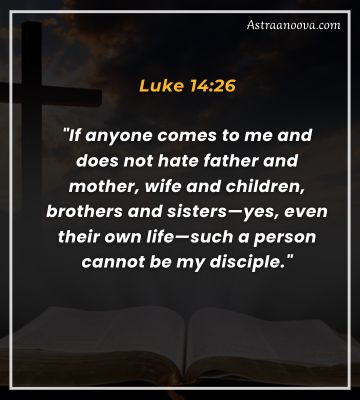
Jesus uses hyperbole to emphasize the supreme commitment required for discipleship, challenging cultural expectations about family loyalties in first-century Palestine.
Matthew 15:21-28
“A Canaanite woman from that vicinity came to him, crying out, ‘Lord, Son of David, have mercy on me! My daughter is demon-possessed.’ Jesus replied, ‘It is not right to take the children’s bread and toss it to the dogs.'”
This exchange illustrates both the expansion of Jesus’s ministry beyond Israel and tests the Canaanite woman’s faith through a challenging dialogue.
Mark 16:17-18
“And these signs will accompany those who believe: In my name they will drive out demons; they will speak in new tongues; they will pick up snakes with their hands; and when they drink deadly poison, it will not hurt them at all.”
These verses describe supernatural signs associated with genuine faith, though interpretations vary regarding their application throughout church history.
1 Corinthians 14:34-35
“Women should remain silent in the churches. They are not allowed to speak, but must be in submission, as the law says. If they want to inquire about something, they should ask their own husbands at home.”
This passage reflects specific cultural circumstances in the Corinthian church, requiring careful interpretation within its historical context.
1 Corinthians 7:1-2, 8-9
“Now concerning the matters about which you wrote: ‘It is good for a man not to have sexual relations with a woman.’ But because of the temptation to sexual immorality, each man should have his own wife and each woman her own husband.”
Paul addresses questions about marriage and celibacy, providing practical guidance for the Corinthian believers while acknowledging both options as valid.
Shocking Bible Verses About Morality
Deuteronomy 21:18-21
“If a man has a stubborn and rebellious son who will not obey his father and mother, who does not heed them when they discipline him, then his father and his mother shall take hold of him and bring him to the elders at the gate of his town… Then all the men of the town shall stone him to death.”
This severe law emphasizes the ancient Near Eastern value placed on parental authority and community order, reflecting legal codes of its time.
Exodus 21:20-21
“When a man strikes his male or female slave with a rod and the slave dies under his hand, he shall be punished. But if the slave survives a day or two, he is not to be punished, since the slave is his property.”
These regulations reflect ancient social structures while attempting to limit abuse within the system of slavery common in biblical times.
Matthew 10:34-36
“Do not suppose that I have come to bring peace to the earth. I did not come to bring peace, but a sword. For I have come to turn a man against his father, a daughter against her mother.”
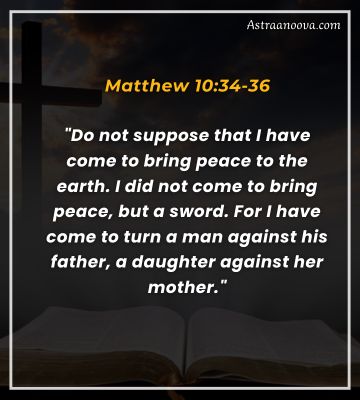
Jesus describes the divisive impact his message would have on families and society, challenging assumptions about the Messiah’s role.
Judges 19:22-29
“While they were enjoying themselves, some wicked men of the city surrounded the house. Pounding on the door, they shouted to the old man who owned the house, ‘Bring out the man who came to your house so we can have sex with him.'”
This disturbing narrative parallels the story of Sodom and Gomorrah, illustrating the moral degradation during the period of the Judges.
Exodus 32:26-28
“Then Moses stood in the gate of the camp and said, ‘Who is on the Lord’s side? Come to me.’ And all the sons of Levi gathered around him… ‘Thus says the Lord God of Israel, Put your sword on your side each of you, and go to and fro from gate to gate throughout the camp, and each of you kill his brother and his companion and his neighbor.'”
This passage describes the severe judgment following the golden calf incident, demonstrating the serious consequences of idolatry in ancient Israel.
Hosea 1:2-3
“When the Lord first spoke through Hosea, the Lord said to him, ‘Go, take to yourself a wife of whoredom and have children of whoredom, for the land commits great whoredom by forsaking the Lord.'”
This prophetic act served as a living metaphor for God’s relationship with unfaithful Israel, using marriage as a powerful symbol of covenant faithfulness.
Read Also >> Bible Verses About Youth Serving God
2 Samuel 13:1-19
“In the course of time, Amnon son of David fell in love with Tamar, the beautiful sister of Absalom son of David… But when she took it to him to eat, he grabbed her and said, ‘Come to bed with me, my sister.'”
This tragic narrative illustrates the consequences of unchecked desire and abuse of power within King David’s family, leading to devastating consequences.
Genesis 19:30-38
“Lot and his two daughters left Zoar and settled in the mountains… They got their father to drink wine that night, and the firstborn went in and lay with her father.”
This troubling account describes the origins of the Moabites and Ammonites, demonstrating the moral complexities found in biblical narratives.
Weird Bible Verses in Leviticus
Leviticus 15:19-24
“When a woman has her regular flow of blood, the impurity of her monthly period will last seven days, and anyone who touches her will be unclean till evening.”
These purity laws served both practical hygiene purposes and symbolic religious significance in ancient Israelite society.
Leviticus 19:19
“Do not mate different kinds of animals. Do not plant your field with two kinds of seed. Do not wear clothing woven of two kinds of material.”
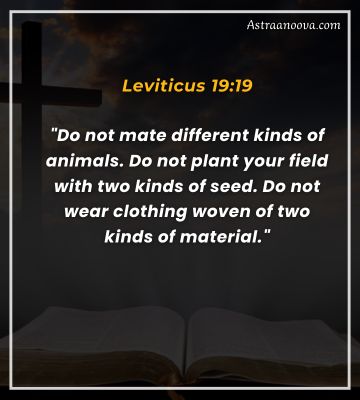
These regulations helped maintain distinct categories in creation, reflecting theological principles about maintaining proper order and boundaries.
Leviticus 19:27
“Do not cut the hair at the sides of your head or clip off the edges of your beard.”
This command distinguished Israelite practices from surrounding pagan customs, helping maintain their distinct religious identity.
Leviticus 11:9-12
“Of all the creatures living in the water, you may eat any that has fins and scales. But all creatures in the seas or streams that do not have fins and scales you are to regard as unclean.”
These dietary laws established boundaries between clean and unclean foods, serving both health and religious purposes in ancient Israel.
Leviticus 12:1-5
“The Lord said to Moses, ‘A woman who becomes pregnant and gives birth to a son will be ceremonially unclean for seven days… If she gives birth to a daughter, for two weeks the woman will be unclean.'”
These purification regulations governed ritual cleanliness after childbirth, reflecting ancient understanding of sacred and profane states.
Leviticus 19:26-28
“Do not eat any meat with the blood still in it. Do not practice divination or seek omens. Do not cut your bodies for the dead or put tattoo marks on yourselves.”
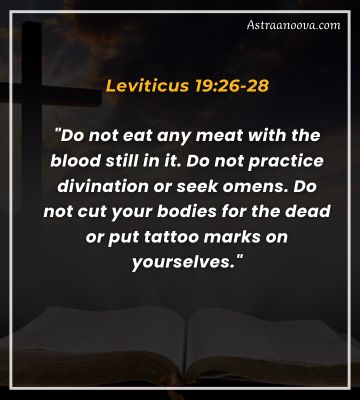
These commands distinguished Israelite practices from surrounding pagan cultures, particularly regarding mourning rituals and religious customs.
Leviticus 21:16-23
“The Lord said to Moses, ‘Say to Aaron: For the generations to come none of your descendants who has a defect may come near to offer the food of his God.'”
These requirements for priests emphasized the concept of perfection in approaching divine worship, though modern readers often find them challenging.
Read Also >> Love Definition in the Bible? 10 Powerful Verses on True Love
Leviticus 15:16-18
“When a man has an emission of semen, he must bathe his whole body with water, and he will be unclean till evening. Any clothing or leather that has semen on it must be washed with water.”
These purity laws governed ritual cleanliness regarding bodily functions, combining practical hygiene with religious significance.
Leviticus 20:18
“If a man lies with a woman during her menstrual period and exposes her nakedness, he has exposed the source of her flow, and she has exposed the source of her blood. Both shall be cut off from their people.”
This regulation combined ritual purity concerns with moral codes governing sexual behavior in ancient Israel.
Leviticus 26:27-29
“If in spite of this you still do not listen to me but continue to be hostile toward me, then in my anger I will be hostile toward you… You will eat the flesh of your sons and the flesh of your daughters.”
This passage contains severe covenant curses, warning Israel about the consequences of persistent disobedience to divine commands.
Bizarre Bible Verses That Challenge Beliefs
John 6:53-58
“Jesus said to them, ‘Very truly I tell you, unless you eat the flesh of the Son of Man and drink his blood, you have no life in you… For my flesh is real food and my blood is real drink.'”
This teaching challenged both ancient and modern audiences, using vivid metaphorical language to describe spiritual communion with Christ.
Matthew 5:29-30
“If your right eye causes you to stumble, gouge it out and throw it away. It is better for you to lose one part of your body than for your whole body to be thrown into hell.”
Jesus employs hyperbole to emphasize the seriousness of dealing with sin and temptation in one’s life.
Genesis 19:30-38
“Lot and his two daughters left Zoar and settled in the mountains… Both of Lot’s daughters became pregnant by their father.”
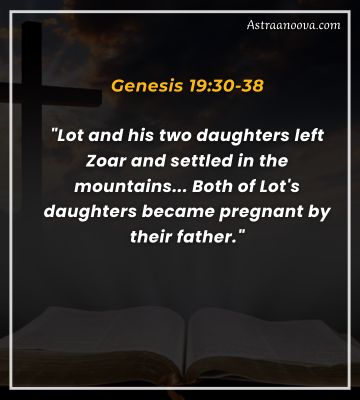
This account of the origins of the Moabites and Ammonites illustrates the moral complexities found in biblical narratives.
Numbers 5:11-31
“If a spirit of jealousy comes over him and he is jealous of his wife… then the man shall bring his wife to the priest… and the priest shall bring her near and set her before the Lord.”
This passage describes the ritual of the bitter water, a supernatural test for suspected adultery in ancient Israel.
Deuteronomy 23:1
“No one whose testicles are crushed or whose male organ is cut off shall enter the assembly of the Lord.”
This regulation concerned ritual purity and wholeness in worship assembly, reflecting ancient Near Eastern concepts of physical completeness.
Judges 11:30-40
“And Jephthah made a vow to the Lord: ‘If you give the Ammonites into my hands, whatever comes out of the door of my house to meet me when I return in triumph will be the Lord’s, and I will sacrifice it as a burnt offering.'”
This tragic narrative illustrates the serious nature of vows in ancient Israel and their sometimes unforeseen consequences.
Weird Bible Verses About Prophecy
Ezekiel 4:4-6
“Then lie on your left side and put the sin of the people of Israel upon yourself. You are to bear their sin for the number of days you lie on your side. For 390 days you will bear the sin of the people of Israel.”
This symbolic action prophecy demonstrated God’s judgment through the prophet’s extended physical demonstration.
Jeremiah 27:2-3
“This is what the Lord said to me: ‘Make a yoke out of straps and crossbars and put it on your neck. Then send word to the kings of Edom, Moab, Ammon, Tyre and Sidon.'”
The prophet’s wearing of a yoke served as a powerful visual metaphor for coming subjugation under Babylonian rule.
Ezekiel 5:1-4
“Now, son of man, take a sharp sword and use it as a barber’s razor to shave your head and your beard. Then take a set of scales and divide up the hair.”
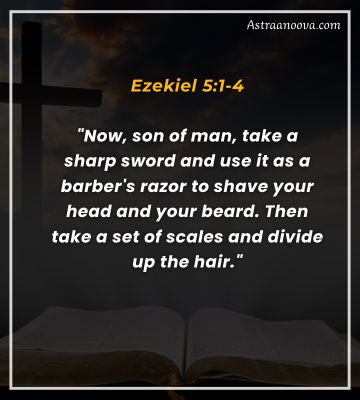
This dramatic prophetic action symbolized the division and fate of Jerusalem’s inhabitants during the coming siege.
Jeremiah 13:1-7
“This is what the Lord said to me: ‘Go and buy a linen belt and put it around your waist, but do not let it touch water.’ So I bought a belt and put it around my waist. Then the word of the Lord came to me again: ‘Take the belt and hide it in a crevice in the rocks.'”
This symbolic action portrayed Israel’s pride and subsequent deterioration through the metaphor of a ruined garment.
Ezekiel 24:15-18
“The word of the Lord came to me: ‘Son of man, with one blow I am about to take away from you the delight of your eyes. Yet do not lament or weep or shed any tears.'”
The prophet’s personal tragedy became a sign to Israel, as his restraint from mourning his wife’s death symbolized Jerusalem’s fall.
Jeremiah 28:10-11
“Then the prophet Hananiah took the yoke off the neck of the prophet Jeremiah and broke it. And Hananiah spoke in the presence of all the people, saying, ‘Thus says the Lord: Even so will I break the yoke of Nebuchadnezzar king of Babylon.'”
This confrontation between true and false prophecy demonstrated the serious nature of claiming to speak for God.
Ezekiel 37:1-10
“The hand of the Lord was upon me, and he brought me out by the Spirit of the Lord and set me in the middle of a valley; it was full of bones… ‘Prophesy to these bones and say to them, Dry bones, hear the word of the Lord!'”
This vivid vision of resurrection symbolized Israel’s national restoration, using powerful imagery of divine renewal.
Conclusion
These unusual biblical passages, while sometimes challenging for modern readers, provide valuable insights into ancient Near Eastern culture, literary conventions, and theological teachings.
Their presence in scripture reminds us that sacred texts often contain elements that require careful interpretation and historical understanding. Rather than avoiding these difficult passages, studying them within their proper context enriches our understanding of ancient religious literature and its enduring significance.
The diversity of these verses demonstrates the Bible’s complex nature as a collection of texts spanning different genres, time periods, and cultural contexts. From prophetic actions to legal codes, from historical narratives to theological teachings, these passages challenge readers to engage deeply with scripture’s multifaceted character.

Multilingual faith educator exploring connections between language, spirituality, and dream symbolism.




